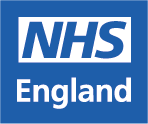Diagnostic Imaging Data Set v2.0 Public Consultation
Overview
Diagnostic Imaging Data Set
The Diagnostic Imaging Data Set (DIDS) is a central collection of detailed information about diagnostic (and other) imaging tests carried out on NHS patients, to be extracted and submitted monthly.
The data set captures information about referral source and patient type, details of the test (imaging code which can be mapped to useful information such as type of test and body site post collection), demographic information such as GP registered practice, patient postcode, ethnicity, gender and date of birth, plus key dates for events in the imaging process to allow derivation of information about waiting times for each diagnostic imaging event, from time of test request through to time of reporting.
By collecting data submitted to DIDS, we are able to:
- provide accurate details on the specific imaging tests performed and the demographics of the patients at a national and sub-national level
- enable analysis of demographic and geographic variation in access to different test types and different providers
- assess effective delivery of care
- provide information on the utilisation of high value imaging equipment
- monitor trends in care and towards improving outcomes
- provide information to improve diagnostic services
- link to other data sets, most notably cancer registration data
The current DIDS (version 1.0) has been reporting activity since April 2012. The changes planned for DIDS version 2.0 (v2.0) are intended to enable the data set to meet a number of new user requirements that have emerged relating to diagnostic imaging data since this time, particularly relating to understanding and supporting services more effectively in order to improve outcomes of care. Details of the changes planned to support these requirements are articulated in this consultation.
Introduction
30 requirements were gathered for consideration for DIDS v2.0. These are published on the Requirements Tracker on the NHS England website.
An Expert Reference Group (ERG) was formed with a range of viewpoints to consider new data set requirements and make recommendations on technical solutions, with four meetings held of this group.
Following elaboration, the requirements planned to be included in DIDS v2.0 with changes to the data set are included in this consultation.
This consultation has been split into sections, grouping like requirements together.
All requirements in this consultation have been through the ERG process.
The requirements and proposed solutions have been included in at least one of the two previous webinars held or included in a further webinar planned to support this consultation.
Why your views matter
As part of the application to obtain approval from the Data Alliance Partnership Board (DAPB), we are asking for feedback on our proposals for DIDS v2.0.
Extensive engagement has already taken place. However, we would now like any interested parties to participate and provide feedback with regards to the technical solutions, before DIDS v2.0 is finalised.
Consultation feedback will be reported back to the DAPB before publication of an Information Standards Notice (ISN) is agreed.
This consultation runs until 7 January 2025.
The draft Technical Output Specification (TOS) is included in Related documents below. This includes data item definitions and information such as whether data items are Mandatory, Required, Optional or Pilot. Respondents are advised to read the TOS as part of considering their response to this consultation.
Information on the consultation webinars that took place on 17 May and 14 June 2024 is available on the NHS England website and on the FutureNHS Diagnostic Imaging Data Set (DIDS) Forum. The further webinar outputs will also be published on the above.
Audiences
- Anyone from any background
Interests
- Patient and public voice
- Health and Social Care Information Strategy
- Information governance
- Health and social care policy
- Patient safety
- Commissioning
- Any Interest
- Cancer

Share
Share on Twitter Share on Facebook